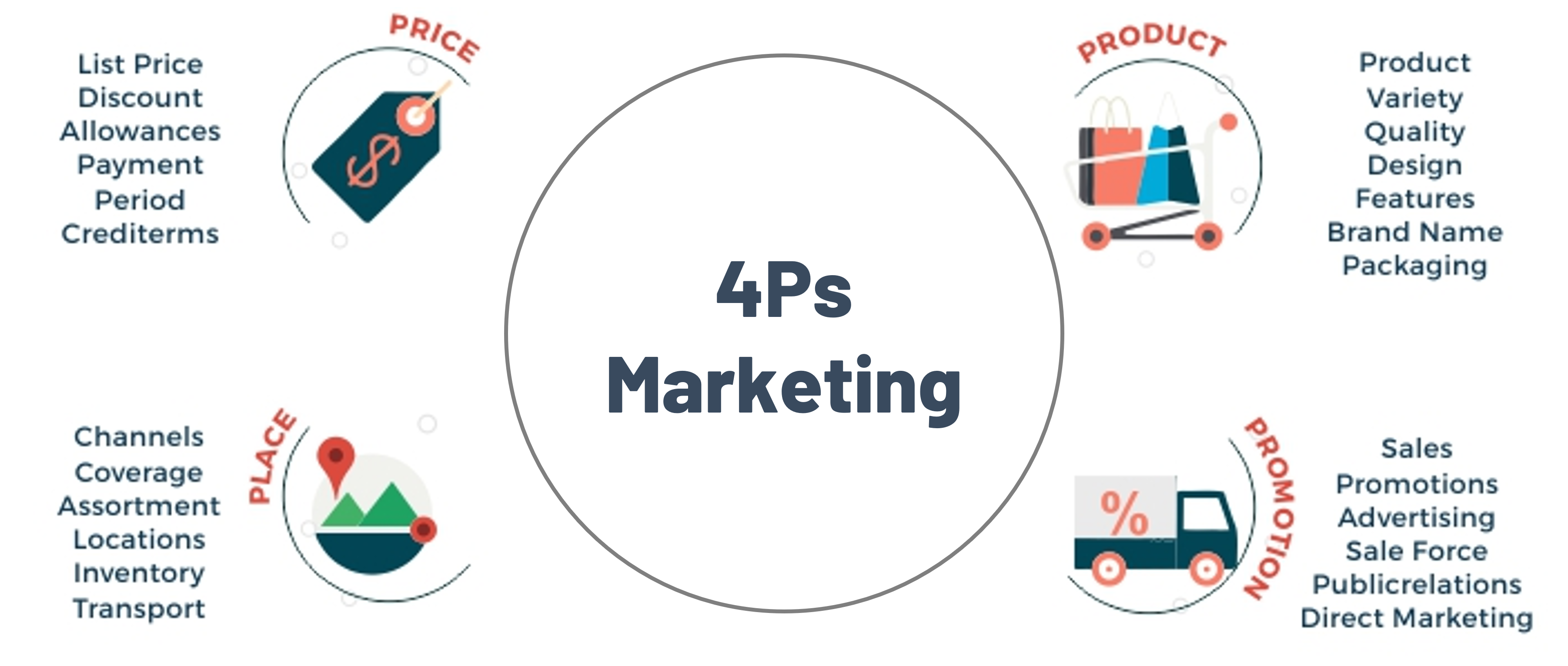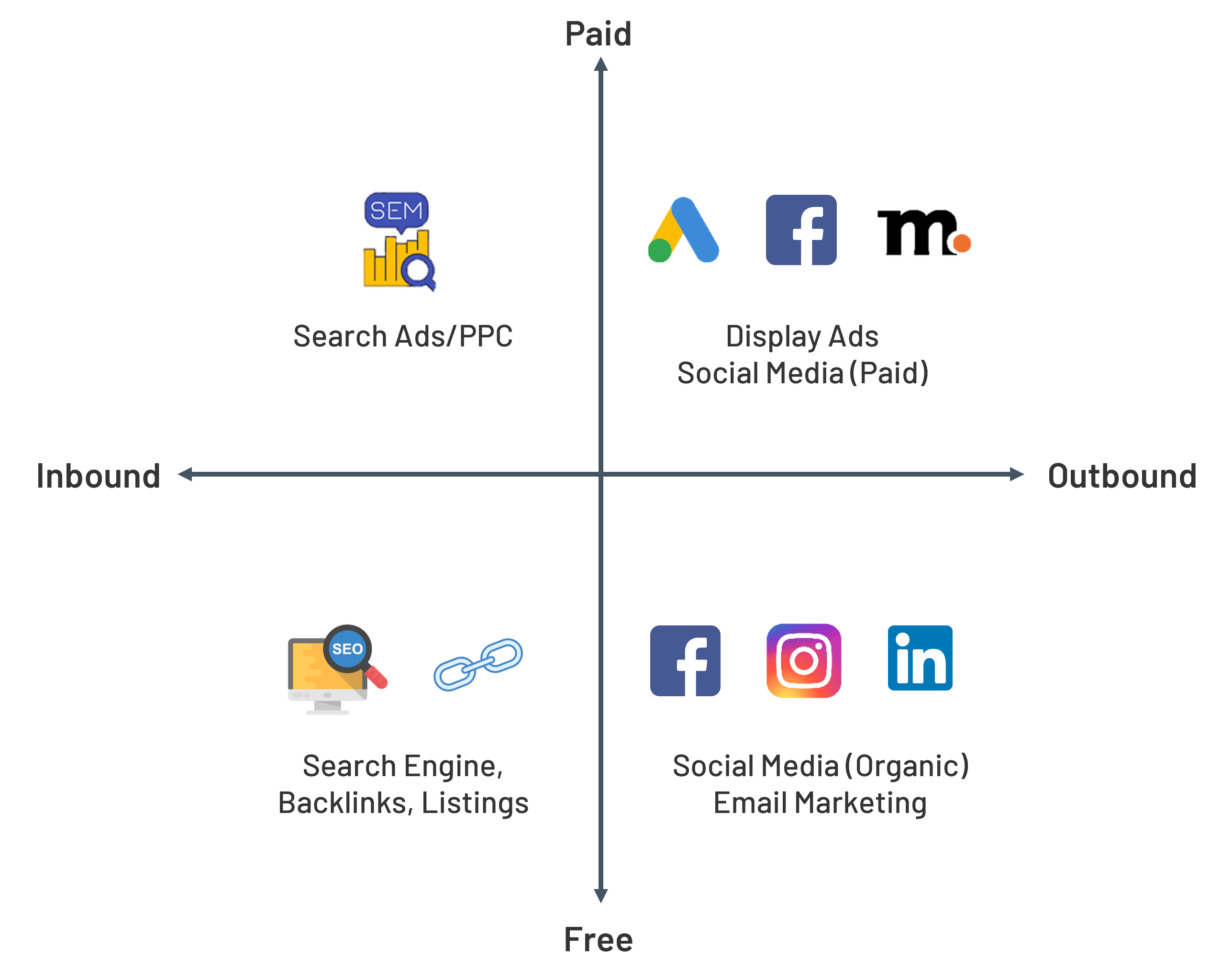Welcome to LearnMarketing.ai!
You are beginning your journey to lean what is marketing in business in a simple and easy-to-understand manner using examples.
Understanding the definition of marketing management is crucial not only for you to know what is marketing as a subject. It also helps you understand what are your responsibilities going to be as a future marketer and also what is marketing and its benefits to any organization.
Let's start off my understanding Marketing well so that you have a good foundation of being the on of the most sough-after marketing students and professionals out there.
What is Marketing in business?
If you were to ask the definition of marketing multiple Chief Marketing Officers (CMOs), you are likely to hear extremely different answers from each of them. Some might even struggle to define it in words, however, you would sense that they would have the feeling from within that what it is.
One of the reasons for this vagueness regarding what is marketing could be that for years and years together, marketing has only been tacit knowledge. Tacit knowledge means the knowledge and the skills that you gain only through experience and age.
And that is why the best of the marketers have dependent on their 'golden gut' developed out of experience than from real data.
However, when you start studying Marketing at a business school, you come across the Marketing Management book by Philip Kotler and Kevin Lane Keller. One of the greatest reasons why this book is so highly regarded is that it gives words and definitions to many abstractions in Marketing.
And the definition of marketing is one such abstraction that needed a simple straightforward definition.
In the book, Kotler and Keller define marketing as – ‘meeting needs profitably’.
In a more elaborate manner, Kotler and Keller suggest that marketing is about identifying, anticipating and satisfying customer needs profitably.
In a more elaborate manner, Kotler and Keller suggest that Marketing is about identifying, anticipating and satisfying customer needs profitably.
Now, I have purposely bolded out four words in that definition. That's because for you to understand the definition of marketing, you need to understand each of these four important words.
Let me take you through the meaning of each of these four important words. I will start in the reverse order.
"Profitably"
From the company's perspective, marketing should be profitable. This implies:
- Profitable for your organization - You could sell a lot more of what you are selling, but what if you are burning a whole in your pocket while doing that?
- Profitable for your customer - It wouldn't also be wise to only look at your profitability. What if the customer buying from you is not profitable because of your costs and the margins that are attached with your product?
Therefore, a better way to understand this word is that Marketing needs to be profitable for all the stakeholders involved.
"Satisfying"
‘Satisfying’ the customer’s needs involves the entire process from creating, communicating and delivering offerings that have some value for the customer.
There is a certain need that the customer has. And whatever you as a marketer offer that customer should satisfy that need.
"Identifying"
‘Identifying’ is the bread and butter of a marketer. You as a marketer have to identify what your customers want.
This means that at all times, you as a marketer need to be here-and-now with your ears on the ground, listening to what your potential customers are 'saying'.
For example, no customer would have ever told in any market research that they want a phone that is really expensive and has a different operating system than Android.
Yet, a marketer identified that need to feel a higher level of social status and people could use a phone to project those feelings. Hence came the iPhone.
"Anticipating"
The most charismatic part of this definition is the word ‘anticipating’. And here lies the essence of the question what does Marketing mean.
Are you ahead of the curve and can you understand what the customer wants before she knows she wants it?
Now when I say anticipating, I am not really asking you to become a psychic soothsayer or a fortune teller.
Anticipation, involves that rare art of listening to the things that the consumers don’t say. You can't really anticipate much from a market research data.
Infact, most of the people don’t even tell the truth in market research!
But the data could be or should be based more on what you observe rather than what they tell.
That’s because people are not telling you something over there. You are observing them. When they don’t even know you are looking.
What is the Marketing Mix
When you think about what is marketing, it is difficult to understand it completely without knowing what is the Marketing mix.
To give you brief history, the marketing mix or the 4Ps of marketing were first introduced in 1960 by marketing professor and author E. Jerome McCarthy.
Marketing mix is important for you because all the marketing decisions that you will fall under the purview of either of the 4Ps of marketing.
So, while we have a full chapter on what is Marketing Mix and examples, let me quickly take you through what marketing mix is.

4Ps of Marketing
Product: The needs and wants of the customer needs to be satisfied. How? By offering them a solution. This ‘solution’ is capture in Product in the marketing mix.
Place: Where and how is this solution delivered? If it is a mobile phone, you can buy it at a store or it can even be delivered home. Those are the ‘channels of service’ so to say. That is captured in Place in the marketing mix.
Price: How much money is your customer willing to pay or required to pay for your product? This is captured in the Price in the marketing mix.
Promotion: How does the intended customer come to know about your offer? Here the offer means what is your solution (product), where can it be found (place) and how much money is to be paid for it (price).
As you progress through the next chapters, you will learn about this in more detail. For the time being, let’s close out this chapter by understanding what are the different kinds of marketing and what makes them different from each other.
Types of Marketing
What you learned up till now in this chapter on what is marketing is the essence of the concept of marketing. However, over the years, this has evolved into various forms and therefore you have different types of marketing that you must know about.
There are multiple ways in which you can group and categorize different types of marketing but the best ones for you to understand are the following:
- Inbound marketing and Outbound marketing - Whether the customer discovers your brand or product themselves (inbound) or whether you consciously reach out to them through various channels (outbound).
- Organic marketing and Paid marketing - Whether you directly paid the channel for each customer acquisition (paid) or did your efforts in increasing the brand awareness result in the customer discovering you (organic).

Types of marketing and their categories
The various types of marketing can now easily be grouped into these categories as mentioned below.
Inbound marketing
- Search Engine Optimization (organic)
- Social media marketing (organic)
- YouTube content (organic)
- Word of mouth (organic)
- Search engine marketing (paid)
Outbound marketing
- Facebook Ads (paid)
- Instagram Ads (paid)
- YouTube Ads (paid)
- Google display Ads (paid)
- Newspaper ads (paid)
- Radio and TV ads (paid)
- Backlinks (organic)
Conclusion and Takeaways
I am sure that in this chapter you have been able to understand what is marketing an the very soul of the word. As I defined it above, Marketing is about identifying, anticipating and satisfying customer needs profitably.
The other takeaways from this chapter are:
- For you to execute your marketing activities and campaigns, you need to control the 4Ps of marketing or the marketing mix.
- The 4Ps of marketing are - Product, Place, Price Promotion.
- Marketing activities can be either inbound or outbound depending on whether the prospect found you (inbound) or you reached out to them (outbound).
- Marketing activities can also be classified as Paid or Organic depending on whether you paid the channel for reaching out to your audience and being discoverable (paid) or the you focused on brand building efforts which led to customer acquisition (organic).
Next Chapter
Now, while explaining about Marketing, I did use words like 'Needs', 'Wants' and 'Demands'. So, while in our everyday language we use these words loosely, you as a marketer need to understand the nuances of these words.
In the next chapter, you will learn about what are 'Needs', 'Wants' and 'Demands'.

